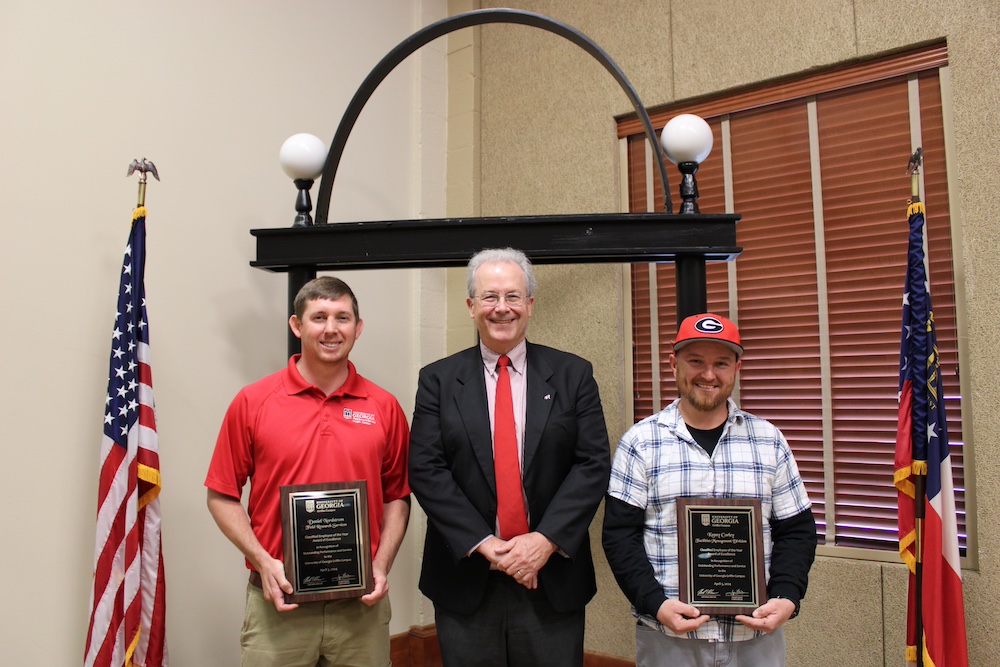By David Emory Stooksbury
State
Climatologist
In the cool season, October through March, normal rainfall is able to recharge soil moisture, streams, groundwater, lakes and reservoirs.
Because of the dry cool season, the soil moisture hasn't been adequately recharged. This is causing low stream flows and dropping water tables across the state.
Dry soil
Low soil moisture is most critical south of the north Georgia mountains and north of an Albany-to-Macon-to-Lincolnton line. In this region, soil moisture is lower than we would expect in late April in 19 out of 20 years.Soil moisture in the mountains and along the coast are at a level we would expect in one of five years in late April.
United States Geological Survey stream gauges are showing extremely low flows across the southern three-fourths of the state. Several places have stream flows that are 25 to 50 percent of normal for late April.
Based on USGS data, groundwater levels were showing good recharge in February 2004. However, with record to near-record dryness in March through mid-April, groundwater levels are beginning to drop.
Recharge season
The normal recharge season for groundwater is over. So groundwater levels are expected to keep dropping through summer into fall.Because of abundant rainfall from September 2002 through June 2003, the state's major reservoirs are in good shape. However, smaller lakes and farm ponds are beginning to show mild drought impacts. Reservoir levels will begin to drop, too, without adequate rainfall soon.
Through the end of February, the state moisture conditions were in relatively good shape, thanks to a wet early 2003. After the dry March through mid-April, though, conditions are drying fast.
There is little hope for short-term recovery. Widespread significant rains don't seem likely until at least the weekend.
Conserve water
Now that we've entered late April, soil moisture loss through evaporation and transpiration (plant water use) is normally greater than rainfall. So even with normal rainfall, the soils will keep drying out through early October.At least mild drought conditions are expected to continue through summer, so take extra measures to conserve water. Water conservation suggestions are available from your local UGA Extension Service office or local water utility.
Comprehensive updated drought information may be found at www.georgiadrought.org. Real-time weather conditions, including soil moisture balance, may be found at www.georgiaweather.net.
(David Emory Stooksbury is the state climatologist and a professor of engineering and atmospheric sciences in the University of Georgia College of Agricultural and Environmental Sciences.)






